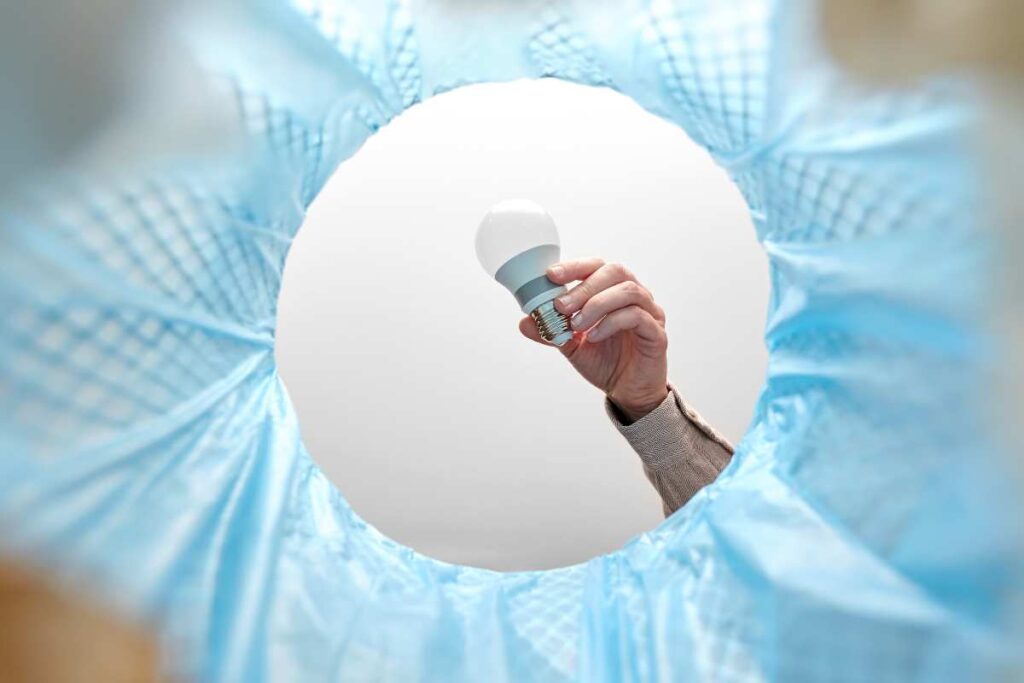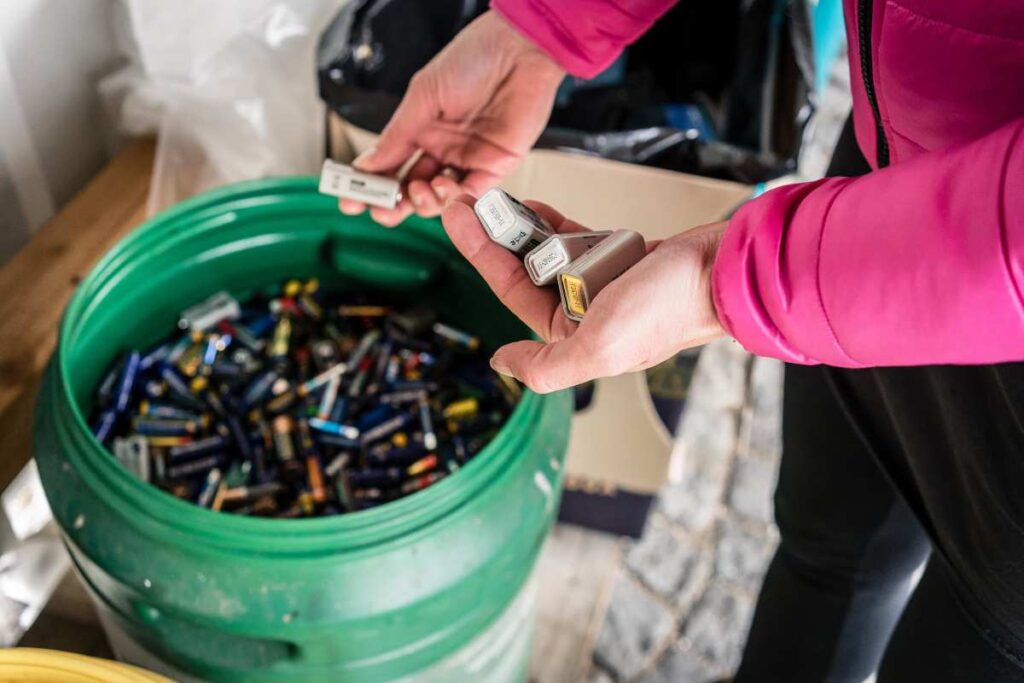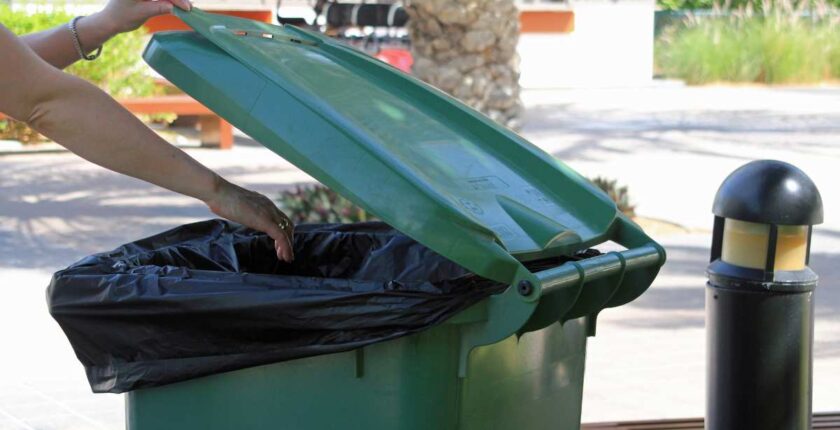Don’t Throw That Away! How to Safely Dispose of Hazardous Materials
As we become more aware of the consequences our actions have on the environment, it’s essential that we take a closer look at what items are being discarded. We already know about proper disposal for some products, but there is also an importance in learning how to responsibly dispose of those things which can’t be thrown away as part of regular waste management.
Without taking this extra step and ensuring that all items are disposed of correctly, pollutants could easily enter into our environment and cause harm both to humans and wildlife alike. Therefore, when managing your own household waste, it is important to not only consider what you can throw out, but also find alternatives for hazardous waste disposal. So, what can you throw in the garbage?
5 Items You Shouldn’t Throw In The Garbage (And How To Dispose Of Them Properly)
In our modern world, we use a wide range of products daily. When these items reach the end of their useful life, they must be disposed of responsibly in order to protect the environment from harm. Unfortunately, throwing certain materials into regular garbage bins can cause serious environmental impacts like pollution and contamination. What can you not throw in a dumpster?
1. Oils
Motor oils are just one type among many which can’t be thrown away in the garbage bin due to potential hazards such as clogging pipes or causing fires when mixed with other flammable liquids. Even worse is that a single gallon spilled down drains or improperly discarded could contaminate up to one million gallons worth of fresh water! That’s why it’s essential for consumers to find alternative methods for disposing of motor oil and other hazardous substances safely and securely!
Make sure you safely dispose of these oils by:
- Pour the used oil into the original or empty oil containers, ensuring that they are properly sealed.
- Locate and visit designated recycling facilities or collection centers, such as those found on the Wicomico County, Maryland Recycling Center List. Some automotive shops and retail stores may also accept used motor oil for recycling.
2. Light Bulbs
As technology has advanced, the lifespan of lightbulbs has improved dramatically. We now have access to a wide range of energy-saving bulbs for various places, such as garages, kitchens, classrooms, and even car headlights. When it comes to disposing of these lights correctly, there are some major differences depending on what type you’re using.
Incandescent and halogen bulbs can be straightforwardly thrown away in the regular trash – just make sure they’re wrapped up tight if they happen to break! LED Bulbs and CFL bulbs (Compact Fluorescent Light Bulbs) cannot go into the landfill because they:

- Contain small amounts of mercury, which can leak into groundwater at landfills and pose health risks to humans and wildlife.
- Use microchips to conduct electricity, which can contain trace amounts of lead and arsenic that can also leak into the ground.
To properly dispose of LED and CFL bulbs, consumers can:
- Take them to retailers like The Home Depot or other designated recycling centers, which often have in-store recycling programs for these types of bulbs.
- Check with local waste management authorities for any specific disposal guidelines or drop-off locations.
3. E-Waste
The rapid growth of technology has seen an alarming rise in e-waste, which includes items such as laptops, computers, smartphones, tablets, and power cables.
Can I throw away batteries? Electronic waste is a major issue. It cannot be disposed of in landfills because:

- Electronics typically have harmful chemicals like lead, mercury, and cadmium, which can leak into the ground at landfills.
- These chemicals can also poison soil and water sources. This could ultimately cause long-term environmental damage and potential health risks.
- Our valuable resources can also be depleted because electronic waste in landfills could render them unusable.
Can I throw away batteries? Electronic waste is a major issue. It cannot be disposed of in landfills because:
- Electronics typically have harmful chemicals like lead, mercury, and cadmium, which can leak into the ground at landfills.
- These chemicals can also poison soil and water sources. This could ultimately cause long-term environmental damage and potential health risks.
- Our valuable resources can also be depleted because electronic waste in landfills could render them unusable.
To make responsible choices when disposing of e-waste, consumers can:
- Visit designated e-waste recycling facilities, such as the Wicomico County Newland Park Landfill Transfer Station, which often have specialized recycling programs for handling e-waste.
- Take advantage of retailer recycling programs, such as those offered by Best Buy, where old electronics can be dropped off for proper disposal or recycling.
- Nonprofit organizations and local governments often organize drives to collect and dispose of e-waste properly.
4. Prescription Drugs
It’s no secret that many of us end up with extra medication in our cabinets – whether it be an antibiotic for a cold or something more powerful, like painkillers. However, when disposing of these leftover drugs, we must keep in mind the potential consequences to both ourselves and the environment.
Throwing pills down the toilet or into the trash can lead to some serious problems:
- Kids, pets, and wildlife may get their hands on them, which could result in poisoning.
- Certain medications are hazardous to aquatic ecosystems if they make their way into water sources.
- Residues from pharmaceuticals have been known to find themselves in drinking water supplies – posing long-term health risks.
So what should you do? There are several options available:
- If your district offers drug take-back programs (often organized by local police stations, pharmacies, or community organizations) then this is your best bet, as those collections provide safe disposal of unused and expired medications.
- If these options are not available, you need to take something unappetizing (like coffee grounds), mix it with the medications, and place it in a sealed container before throwing it all away with the regular garbage.
This will make sure curious children and animals won’t be tempted by any remaining pills inside.
5. Paint
It’s easy to get caught up in daily life and forget about the environment, but managing our waste responsibly is essential for a brighter future. If you’re looking to do your part, take note of how different household items should be disposed of properly. Paint, in particular, can be tricky because there are two types (latex or oil-based) that require distinct methods for disposal.

When it comes to paint disposal, wet latex or oil-based paints should never be thrown away as they can seep into the soil and contaminate the land below. To avoid this dangerous situation:
- Let the paint dry completely by leaving its lid off for an extended period.
- Mix it with absorbent materials like sawdust or kitty litter.
- Once hardened, throw it out safely with other garbage.
Alternatively, you could also bring wet/leftover paints to hazardous waste collection facilities where they will properly dispose of them. Don’t forget to check local guidelines beforehand! In doing so, we help preserve the Earth around us while maintaining cleanliness today and tomorrow!
Keep the Environment Clean and Enjoy Hassle-Free Garbage Disposal With Seagull Disposal
If you’re looking for top-notch trash removal services, then look no further than Seagull Disposal. With years of expertise under our belts and an incredible track record in the community, we offer amenities that other companies don’t provide – from hazardous material disposal to advice on proper waste management techniques. We’ve got your garbage needs covered!
For residential or commercial quotes at no cost whatsoever, head over to our website or give us a ring at (443) 880-0809! When it comes to disposing of potentially harmful materials safely and keeping our environment pristine for future generations, trust in Seagull Disposal’s reliable services!

